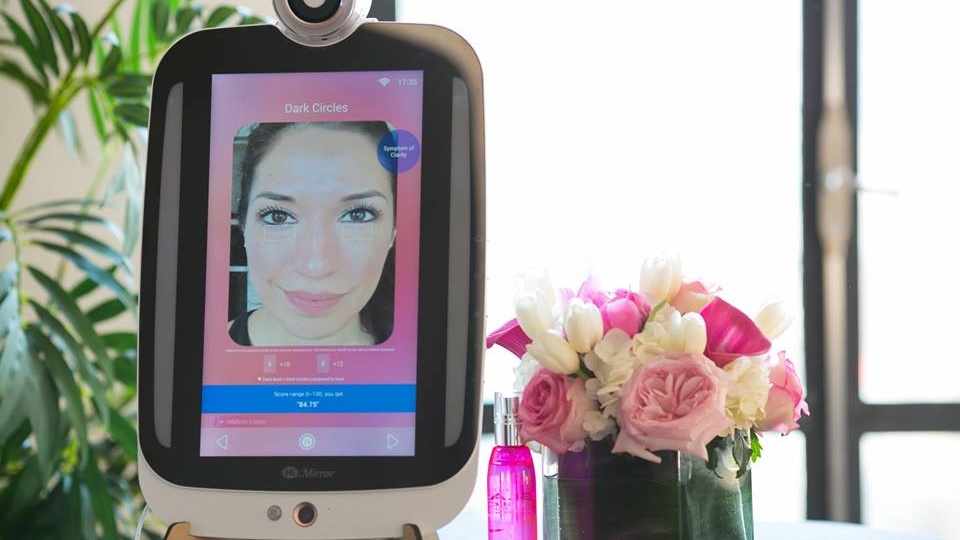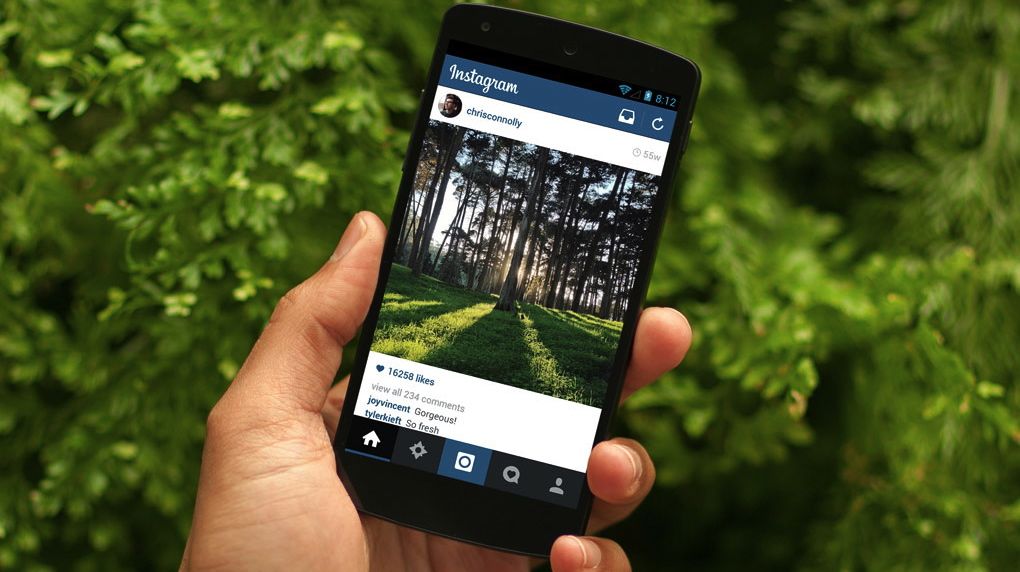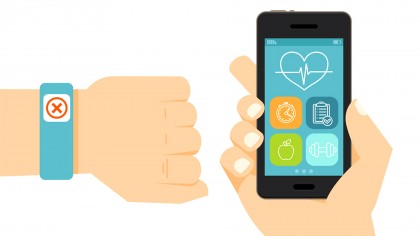Smart mirror on the wall, reinforce my belief that I'm not the fairest of them all
Smart mirrors and self-reflection

The Evil Queen in Snow White was many things – fashionable, well-spoken, beautiful – but she certainly wasn’t secure or modest.
Maybe she wasn’t told she was pretty enough, or maybe she was told she was pretty and nothing else. Whatever the reason behind her need to be the fairest of them all, we have to question just how good an idea it was for her to seek out a mirror that never lies.
Though we don’t have magic mirrors, we do have technology that’s allowing for devices that come close. I recently had the chance to spend some time with one such smart mirror. As a smart home product I found it had a lot of strengths and potential. But it also has limitations that we should take care to consider.
Rate your face
A big selling point of the smart mirror concept is that it can take a picture of your face and analyse the quality of your skin. Using a camera mounted atop the mirror, simply take a selfie and the mirror will do the rest of the work.
The model that I spent time with looked at seven different common problems we have with our skin: wrinkles, fine lines, dark circles, dark spots, red spots, roughness, and pores. Once the mirror has analysed these areas, it’ll give you your results.

The results are presented in three ways: you'll receive a rating between 0 and 100 for each skincare category, as well as a rating for your overall skin health; you'll get a count of the number of red spots, dark spots, wrinkles, fine lines and pores that you have; and you'll be told the percentage of your face which these flaws take up.
Even better, it’ll show you back your picture – which, by the way, will never be your best you, no matter how hard you try – and pinpoint exactly where it’s noticed your imperfections.
Sign up for breaking news, reviews, opinion, top tech deals, and more.
I wouldn't say I'm overly vain. I am aware of, and care about, how I look. I have a skincare routine that’s basic but enough for me, and I take care to wear some form of SPF every day. I was interested, then, to see what this smart mirror's facial scanning technology would make of my face.
Healthy body, healthy mind?
On my first scan (wearing makeup) I was told my skin health is a solid 99 out of 100. Yes! But I have 11 wrinkles, 15 fine lines, 3 red spots and if my pores are anything to go by, I may have a crumpet somewhere in my family tree.
The second time I scanned my face I was makeup free and the results weren't quite as favorable. That time the mirror told me that though my skin brightness had increased and I had one less wrinkle than it thought, I had more red spots, more pores (wow) and my skin health was actually more of a 95 rather than a 99.
"Oh dear," the mirror told me, "it seems skin condition has slipped back a bit." Whatever happened to positive reinforcement?
"I have 11 wrinkles, 15 fine lines, 3 red spots and if my pores are anything to go by, I may have a crumpet somewhere in my family tree"
What have I to take from this? According to the mirror I may want to invest in products that reduce redness, and use a combination of gentle exfoliation and salicylic acid to reduce my pores.
This smart mirror is part of a wide range of technology which feeds into the concept of the quantified self, whereby people can achieve “self-knowledge through self-tracking with technology”, as the UK government puts it.
The problem I have with the quantified self is we're at risk of being so surrounded by data about ourselves, we forget we have facets that can’t be tracked, but are still worth paying attention to and valuing.
Over the past decade we’ve seen a number of studies detailing that, more than ever, our mental health is suffering as a result of body image concerns and pressures from social media.

Feeling the pressure
Last year it was reported that more young women and girls are being admitted to NHS hospitals for self-harm than ever, with rising levels of body dissatisfaction being identified as a driving force. The British Youth Select Committee also reported that "body dissatisfaction can start as young as six and lead to depression, anxiety and eating issues."
"Emotional problems in young girls have been significantly, and very worryingly, on the rise over the past few years.”
Dr Bernadka Dubicka, the chair of the ch
“There is a growing crisis in children and young people’s mental health, and in particular a gathering crisis in mental distress and depression among girls and young women,” Dr Bernadka Dubicka, the chair of the child and adolescent faculty at the Royal College of Psychiatrists, told the Guardian.“Emotional problems in young girls have been significantly, and very worryingly, on the rise over the past few years.”
There’s already a stigma specifically around skin and skincare; there are misconceptions with regards to personal hygiene, diet and exercise around acne in particular. In a survey, the British Skin Foundation found that 62 percent of teenagers have suffered verbal abuse from friends, family or strangers because of their acne and this can lead to serious confidence and mental health problems.
Data damage
I believe that we place a lot of pressure on ourselves to be perfect. Though there is a belief that this has been exacerbated by social media, I worry that products like smart mirrors are also contributing to the problem by giving us a way to more-specifically identify and track things we believe to be flaws. They reinforce the notion that any marks on our skin are imperfections to be improved, rather than accepted as a part of ourselves.
That said, there are many benefits to all this data we have about ourselves – it can give us a lot of information about our health and fitness and assist us in finding ways to improve it.
"There are many benefits to all this data we have about ourselves – it can give us a lot of information about our health and fitness and assist us in finding ways to improve it"
If you’re trying to hit 10,000 daily steps to improve your fitness levels you’d hardly want to count each one to be sure. But FitBits are able to tell you how near or far you are from your goal, letting you adjust your habits around that information to improve your performance.
We've even seen instances of smartwatches saving lives thanks to heart rate monitoring.
However, when it comes to the kind of data offered by products such as the smart mirror I tried, I’m less able to see only the positives. This isn’t medical data – the mirror itself says this information shouldn’t be used for medical purposes – and the information it gives me isn’t likely to impact my physical health.

Need to know basis
The largeness of my pores, my wrinkles, my fine lines – none of these things are particularly detrimental to my physical health and, actually, they're a kind of self-knowledge I don’t particularly care to have.
It’s a surface-based self-knowledge, and it’s an objective confirmation of things I already knew were there but didn’t pay particular attention to. Now, however, their severity has been rated and I’ve effectively been told I could really afford to improve upon them.
This smart mirror has opted for a personal ratings system for its users rather than any kind of competitive scoring. This approach is intended to lessen the risk that the information users receive will make them feel bad about themselves, because the only person they have as a frame of reference for improvement is themselves.
"To some this data will be genuinely useful and they’ll relish the opportunity to refine their beauty routine with the information given to them"
I understand that to some this data will be genuinely useful and they’ll relish the opportunity to refine their beauty routine with the information given to them. And I really don't think the use of a smart mirror will lead to a young woman living out her life in a forest with seven dwarves, until she marries a prince and makes you dance to death in burning hot iron shoes.
I just have some reservations about the way in which gathering data on personal appearance is such a large focus of the product.
The features of the mirror that intrigued me most actually didn’t involve my skin quality.
I liked the fact that it told me the weather so that I could adjust my routine to suit; I liked the ambient lighting so that I could see how my makeup would look in different lights (there’s nothing more frustrating than leaving the house to discover that you’re far more orange than you initially thought); and I really liked the idea of being able to watch makeup tutorials on the mirror while I went through the motions of my makeup and skincare routines.
On the surface
Basically, I liked the features of the mirror that allowed me to spend time with myself and focus on my appearance in a way that didn’t make me feel like I was a project with room for improvement.
Though I don’t think products like this should necessarily have any responsibility to make our mental health and relationships with ourselves any better, at the very least I hope they’ll put efforts into not making them any worse.
I am my own worst critic and if I’m perfectly honest, not beating my own personal best will hit me just as hard as not beating the personal bests of others. Setting users up against themselves does not, in my view, cancel out any risk of unhealthy and obsessive behavior.
"I liked the features of the mirror that allowed me to spend time with myself and focus on my appearance in a way that didn’t make me feel like I was a project with room for improvement"
When people are on a personal weight-loss journey they only have themselves to beat. Unfortunately for some this can spiral into an unhealthy obsession, where your best is never good enough and every slip up, or week of stagnation, is used as a mental stick for beating yourself with.
The problem with putting a rating to something that doesn’t actually have a particularly large impact on someone’s quality of life and telling them they can improve it, is that there’s an implication – intentional or otherwise – that improving this part of themselves could potentially make them happier in some way. If your rating is better, perhaps you will be.
What you see isn't what you are
Unfortunately, that’s rarely the case. Over the years I’ve found that what I see in the mirror is highly dependent on a whole number of things that actually have nothing to do with my outward appearance, and this is likely the same for a lot of people. On days of high-stress, anxiety and worry I see myself as far less attractive than on days where I’m calm and surrounded by people I like and love. Fatness and ugliness are not feelings, yet how often do we or others verbalize them in a way that suggests they are?
"What I see in the mirror is highly dependent on a whole number of things that actually have nothing to do with my outward appearance"
What happens if your skin rating has improved but you’re not actually any happier with yourself? You’ve solved your biggest problem with yourself, right? Why is everything not better now? Perhaps it's time to fixate on something else.
Certainly I have had times where my skin has been the source of my bad mood, whether because of uncomfortable dryness, or spots, or sun burn. But in these cases the problem has usually been so obvious to my own eyes that I haven’t required – or wanted – a piece of technology to tell me the thing I’m fixating on is, indeed, a problem that needs fixing. A noticeable one at that.
As technology makes it easier to gather data on our physical selves, it's important not to let a drive for self-improvement eclipse the need for self-appreciation. You are more than the sum of your quantified parts.

Emma Boyle is TechRadar’s ex-Gaming Editor, and is now a content developer and freelance journalist. She has written for magazines and websites including T3, Stuff and The Independent. Emma currently works as a Content Developer in Edinburgh.